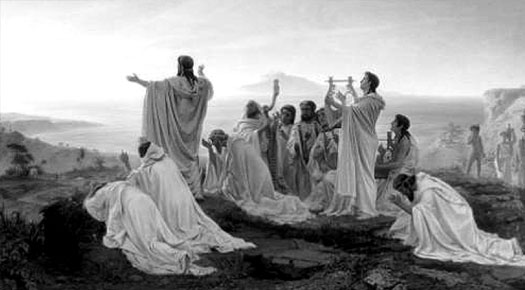
The Pew Research Center conducted a survey in September which revealed that people want more religious influence in politics. The survey showed that 72% of the people in America believe religion is losing its influence, but 49% want religion to be more present in political life. The number increased from 40% back in 2012.
Michigan State University professor Gene Burns says: “It ebbs and flows.” He adds: “What people often assume is this country suddenly got more religious when that happens.”
In Michigan, state lawmakers have pushed forward a number of religious issues in the past several months. One bill in particular, referred to as the Religious Freedom Restoration Act, sparked heavy debate in the Legislature last year. The bill proposes to provide protections against the government forcing people to do something that violates their “deeply held religious beliefs.” It mirrors the federal act by the same name that was passed in 1993, which doesn’t apply to states. More than 20 other states have passed their own religious freedom policies.
“Religious conservatives have been an important part of the Republican Party since the late ‘70s,” Burns said. “Just how influential varies by states and elections.” He adds: “Sometimes it’s hard to tell the Christian right from the tea party organization. Certainly the Christian right has had a history for decades of turning out well (to vote).”
Republican Lee Chatfield, graduate and now teacher at Northern Michigan Christian Academy in Burt Lake, said he consults his faith often in making daily decisions, whether it’s in his personal life, formerly as a teacher or now as a legislator.
“I think any person’s worldview impacts the decisions that they make and I’m no different,” he said. “My faith impacts every decision I make and I believe I’ll be held accountable for those decisions.”
Photo Credits: Wikimedia
